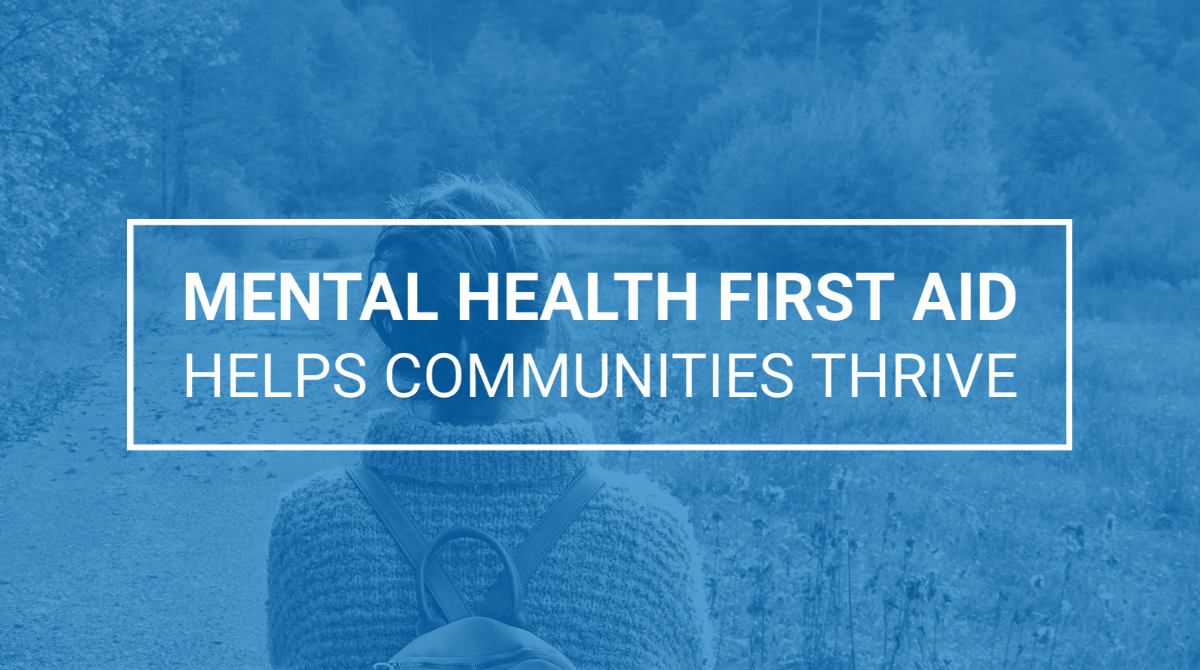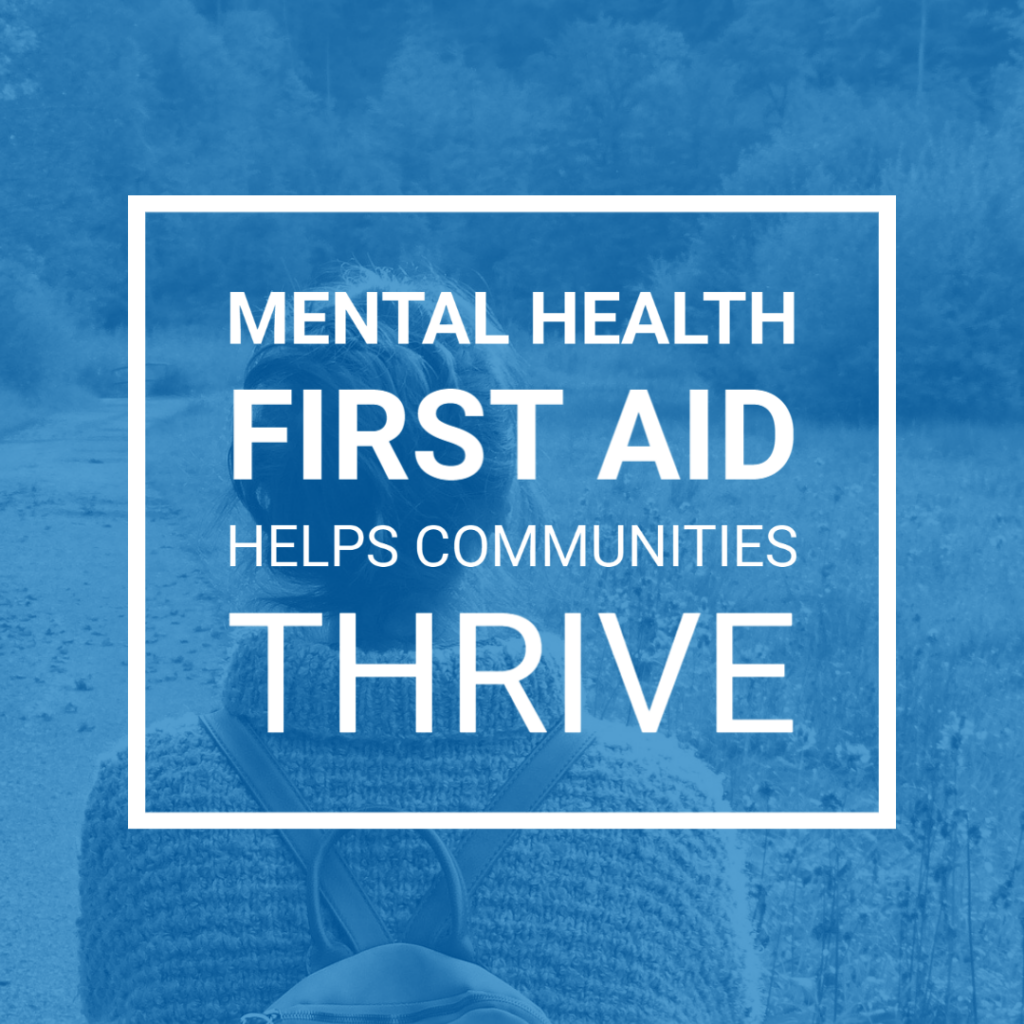May is Mental Health Awareness Month. Amid an incredibly challenging and isolating time, it serves as an important reminder to prioritize our mental health care and connect with the community in safe ways. The Centers for Disease Control and Prevention (CDC) reported that about 40% of Americans struggled with their mental health in 2020. As traumatizing and difficult as this past year has been for everyone, it also opened necessary conversations around mental health in our communities. United Way of Southern Maine and Thrive2027’s Goal 3 seek to expand training in this area so that community members feel empowered to continue these important conversations.
Before the pandemic, Thrive2027, led by UWSM and powered by our community, worked to reduce preventable premature deaths by 10% through a series of strategies aimed at helping those suffering from mental health or substance use. One of the strategies, “train others to recognize warning signs of people at risk and take appropriate action” prompted the launch of the first Mental Health First Aid (MHFA) training volunteer opportunity. As the pandemic persisted, UWSM realized the increased importance of this training for the community and worked with the Maine Chapter of the National Alliance on Mental Illness (NAMI ME) to launch the first evidence–based virtual training in March with 25 community volunteers.
Mental Health First Aid teaches people to identify, understand, and respond to mental illness. Participants learn the risk factors and warning signs of mental illness, how to take steps to help someone in crisis, and available support options. After completing the course, individuals receive official MHFA certification, which lasts for three years.
The first training provided volunteers several opportunities to practice their skills in small and large group settings, and strategies on how to implement their learning in their workplaces and communities to assist others and serve as advocates for mental health awareness.

“It was incredibly helpful to get some guidance on how to start these conversations, which I think, is the hardest part. It was also comforting to know that our job is not to fix the problem (I am a natural helper and fixer) but rather provide a listening ear, and then resources.”
From participant feedback from our first session, volunteers echoed Katie’s sentiments. Several mentioned they will use what they learned to develop resources or start conversations at their workplaces.
Lynn Lavorgna Landry, a volunteer from Retail Business Services (RBS), said they plan to bring additional MHFA training to teams at RBS within the next year.
Outside the workplace, many participants noted how helpful the training would be for their personal lives and other social groups they are a part of.
If you or others in your workplace or community are interested in attending an upcoming Mental Health First Aid session, please email Nina at nmisra@uwsme.org. Training slots fill quickly. For additional ideas on workplace policies that are mental health friendly, check out UWSM’s Thriving Workplace Policies and Best Practices document.

